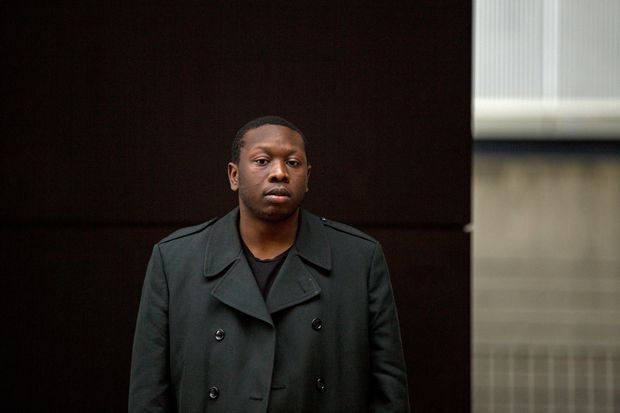Ryerson University wants to help more black entrepreneurs turn their ideas into businesses, and is launching a program offering seed money, mentorship and access to further investment for startups led by black businesspeople. The Black Innovation Fellowship is partly funded by a donation from property developer Isaac Olowolafe Jr. It will start recruiting applicants in the new year, with its first cohort of 10 businesses set to start in the spring.
New Ryerson fellowship offers a boost to black entrepreneurs in Canada

“Black entrepreneurs in Canada face distinct barriers to access, from access to seed capital to fewer publicly-recognized role models,” said Dasha Pasiy, a media relations officer at the Toronto university. “For some groups of black Canadians – like newcomers and women – these challenges can be multiple and magnified.”
The program will be offered through Ryerson’s 10 business incubators, or “zones,” which accept applications from anyone – not solely current students. Director of zone learning Richard Lachman says the fellowship focuses on startups with a technical aspect, but the university takes a broad perspective on what that might include. “It does not have to be a screen-based business.”
Participating entrepreneurs will have access to supports in areas such as seeking venture capital and networking with potential collaborators and industry leaders. There will also be opportunities to pitch to investors, receive seed funding from Mr. Olowolafe’s investment fund, and be mentored by others in the black community. Mr. Lachman says research into similar programs has found that under-represented groups are more likely to succeed if they are offered additional support. “It turns out that getting in the door is not enough. For example, universities could have admissions in [science, technology, engineering and math] at parity, but graduation rates are not equivalent.”
This is not Mr. Olowolafe’s first notable donation. In 2015, he gave $105,000 to Ryerson’s Student Learning Centre. In 2010, he donated $25,000 to the University of Toronto to create an endowment fund for African studies undergraduates.
In addition to Mr. Olowolafe’s $200,000 gift to the Black Innovation Fellowship, he has committed to helping Ryerson raise another $800,000 to fund the program. He says he’s also amassing a team of business leaders, former politicians and banking executives to continue to advise participants after the formal fellowship period ends, and he’s putting together a black-led venture capital fund aimed at supporting black-owned businesses, that he expects to reach $125-million.
All of this sheds light on the lack of diversity when it comes to entrepreneurship and technology, said Mr. Olowolafe, 35, whose Toronto-area company builds condos, townhouses and luxury homes, and is now working on a hotel. “If you have a business idea but you don’t have access to seed capital, the dream is dead before you get started.”
Jeffrey Stewart, a black entrepreneur whose company, Ovandi, works at Ryerson’s Design Fabrication Zone, is enthusiastic about the potential of the fellowship. Ovandi, which is launching a cannabis vaporizer in the spring, had a hard time getting money when it needed it the most – at the beginning. Mr. Stewart says that’s typical in Canada and can drive companies toward Silicon Valley. “That $50,000 cheque when you first have your idea is more valuable than $50,000 when you have a product you can sell.”
Mr. Stewart says that while he has no evidence he’s been denied funding because of his race, he’s heard several vague explanations from uninterested investors.
“They’ve said things like, ‘You don’t seem like the type of person I would invest in,’ ” he explained, adding that he tries to give people the benefit of the doubt, but has spoken to black peers who find these types of rejections devastating. “You don’t know if that ‘no’ is because the idea is bad or because you’re not liked for being who you are. It’s in the backs of minds of a lot of founders and people of colour: Is someone denying me because they don’t believe in my vision, or is it because they don’t believe in me as a person?”
Camille and Roger Dundas founded web magazine ByBlacks.com, which focuses on black Canadian culture, in 2013. They say they’ve faced various types of discrimination in their entrepreneurship journey, from people saying they shouldn’t use the word “blacks” in the company’s name, to a small-business funding agency declining to award a grant while suggesting the publication wouldn’t last because “black people don’t support each other.”
“He motivates me every day. He forced me to work harder,” said Mr. Dundas, the publisher. He sees merit in Mr. Olowolafe’s plan to create a black-led venture capital firm, saying it’s much easier to explain an idea to someone who understands its cultural basis.
Ms. Dundas, the site’s editor-in-chief, sees the mentorship aspect as equally important, saying it was other black women who first gave her a chance. “You can have talent, ideas, and skill, but you need the right people to open the doors.”
Original story from: https://www.theglobeandmail.com/business/small-business/article-new-ryerson-fellowship-offers-a-boost-to-black-entrepreneurs-in-canada/
Categories
Contact
Unit 1-16 McAdam Ave. North York, ON, M6A 0B9
@Copyright 2022
Dream Legacy Foundation


Leave a Reply